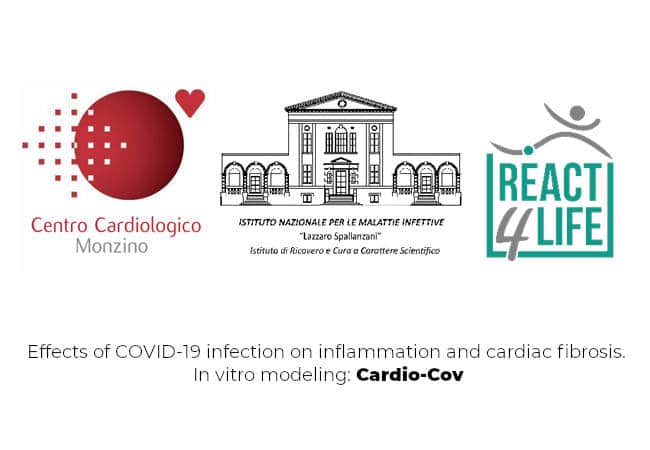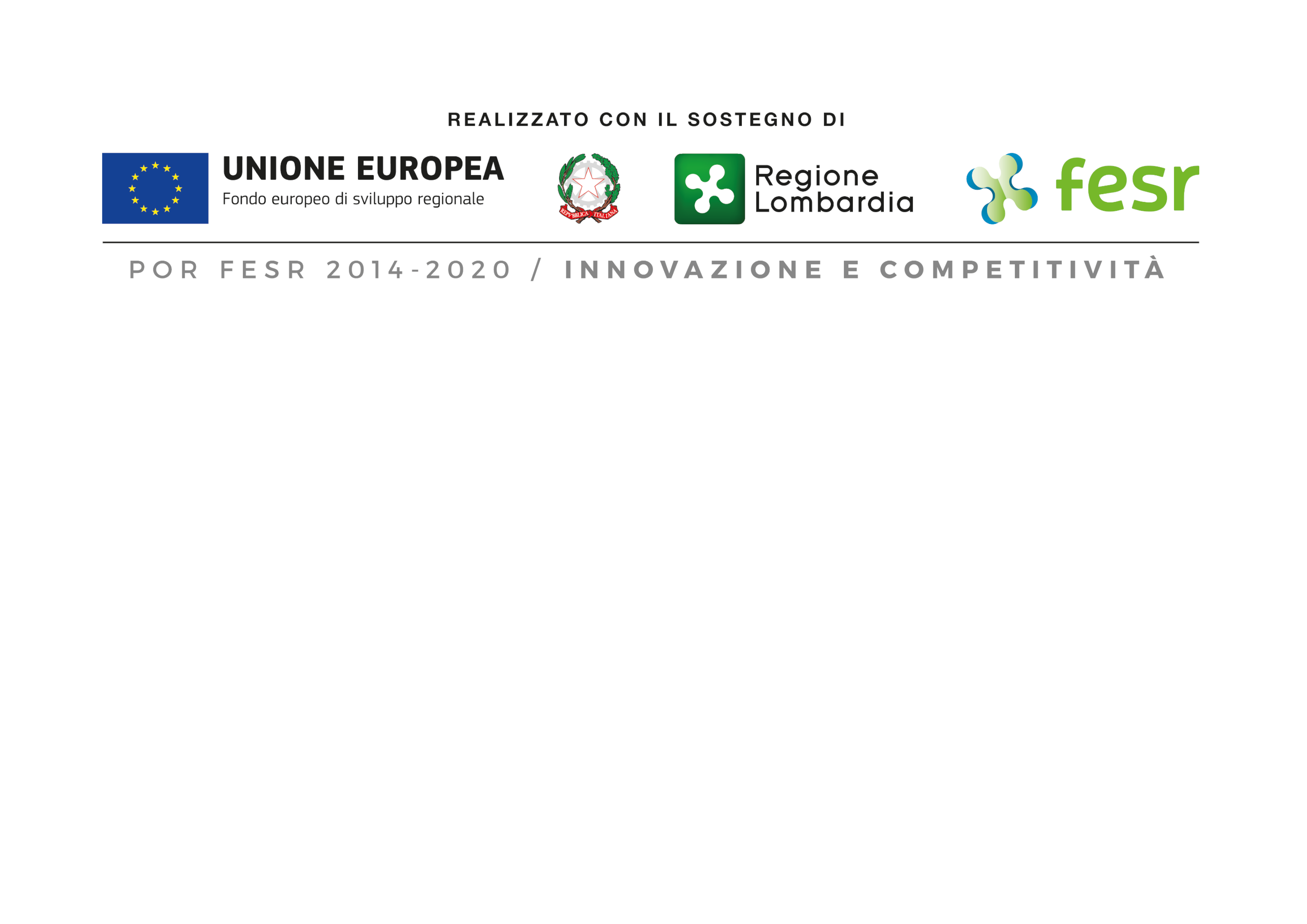Monzino and Spallanzani, with the biotech React4life, join forces to study new therapies to protect the heart from the virus. Regione Lombardia finances the Cardio-Cov research project.
To understand the mechanisms on the heart connected to COVID-19, Centro Cardiologico Monzino, with the collaboration of the National Institute of Infectious Diseases (INMI) “Lazzaro Spallanzani” in Rome and the innovative biomedical research company React4life, has obteined from Regione Lombardy a € 513,000 in funding for a six-monthly research project entitled “Effects of COVID-19 infection on inflammation and cardiac fibrosis. In vitro modeling: Cardio-Cov “.
Since the beginning of the pandemic, the infection caused by the new SARS-CoV-2 coronavirus has proven capable of causing consequences not only in the respiratory level, but also in the heart, with complications such as arrhythmias and decompensation, persisting even after recovery. At the moment it is not clear whether these consequences are directly attributable to the virus or to the effect of the so-called “cytokine storm”, caused by the very marked increase in circulating inflammatory factors. So the virus is known to damage the heart, but they are not known the molecular mechanisms that create this damage, and for this reason there are currently no targeted drugs that can guarantee more effective cardioprotection.
The Cardio-Cov project (funded by the organization of the “Regional Operational Program 2014-2020”, Line 2A) aims to shed light on these mechanisms by examining the interaction between the new Coronavirus and the stromal cells of the heart, a cellular type involved in the inflammatory and fibrotic response.
“Already in the first data from China in February, the presence of significant cardiovascular problems in patients affected by COVID-19 is evident – explains Maurizio Pesce, Head of the Research Unit in Cardiovascular Tissue Engineering of Monzino and coordinator of the project – We therefore have hypothesized that the systemic damage from the infection found directly affects the heart through the interaction of the virus with cardiac cells, or through a mechanism induced by the image of circulating inflammatory cytokines. Supporting this hypothesis is the presence of one of the most important pathways with which the virus enters the host cells, the ACE2 receptor, is present on cardiac stromal cells and that precisely these cells are protagonists in the paracrine / inflammatory response to the the basis of fibrosis and heart failure “.

Cardio-Cov will use classic virological methods and innovative tissue engineering technologies, thanks to which it will be possible to directly verify the effects of the infection, and / or the activation of inflammatory mechanisms in the myocardium. Since these technologies are available to partners particularly suitable for studying the effect of drugs in highly controlled and reproducible conditions, with the Cardio-Cov project it will be possible to evaluate the efficacy of specific cardioprotective pharmacological compounds for COVID-19. The latter result will be very useful for identifying therapies that can reduce the risk of myocarditis, cardiogenic shock, inflammation or cardiac fibrosis, related to SARS-CoV-2 infection.
Starting from Monzino’s know-how, which has experience in the analysis of cardiac stromal cells and their inflammatory and fibrotic potential, the project will analyze the response in vitro to exposure to SARS-CoV-2 using virus samples made available disposed by the National Institute of Infectious Diseases (INMI) “Lazzaro Spallanzani”, which was among the first in the world to isolate the SARS-CoV-2 virus. The study will also make use of cutting-edge technology, developed by React4life, the patented MIVO (Multi In Vitro Organ) technology that allows to host and to culture sterile cells, 2D or 3D tissues, or patient biopsies in sterile fluid-dynamic conditions, reproducing in vitro a physiological condition close to the patient’s real one, without the need for animal testing.
“The tests we are carrying out at INMI – continues Alessandra Amendola, Biologist Director of the INMI Virology laboratory – are intended to investigate the relationship, not yet clear, between SARS-CoV-2 and heart cells. In particular, we are verifying the susceptibility of cardiac stromal cells to SARS-CoV-2 infection through in vitro infections with the viral isolate in our possession. From the results we will obtain, we will be able to understand whether the cardiac stromal could be considered a reservoir, that is, a source of viral production in COVID-19 patients. Furthermore, we hope to clarify whether heart damage is observed in many, but not all COVID-19 patients, are a direct effect of the virus’s interaction with the cells of the heart or if they represent a phenomenon more or less related to a powerful response. immune system, in turn the consequence of other specific characteristics of the patients which, to date, have not yet been identified “.
The project involves the use of the patented MIVO technology, a multi-chamber fluid system that is the target of years of research by the React4life team and an example of technological innovation in the biotechnology sector. As stated by Silvia Scaglione, co-founder and CSO of React4life, «MIVO facilitates and accelerates the scientific research of the operators involved in the discovery and development of drugs, in any sector of the medical frontier. Our mission is to provide innovative technological solutions to support science, for the benefit of patients “.
“The strength of Cardio-Cov is that, thanks to the technology and skills used, it will immediately obtain the expected results in the field of cardioprotective drug therapies – concludes Pesce – Which means, in concrete terms, that even in the event of an epidemic of second wave, we will have new tools to protect the heart and thus reduce the mortality and the frightening effects of COVID-19 on our health “.


